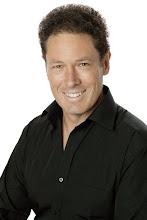Viruses are present in the environment all year round. Some people seem to rarely get viral illnesses and others are frequently sick. Equal exposure does not mean equal numbers or severity of infections.
Lois Pasteur, the father of germ theory reportedly said on his deathbed “the seed (germ) is nothing, the soil (body) is everything.” Whether you get swine flu will be determined by your health rather than the virus. If this were not the case everyone would be equally affected.
To use an analogy, if it is raining outside and you are inside a house, you won’t get wet – unless the roof is damaged and leaking. The rain is the same but your protection has been damaged.
Our protective roof against viruses is our immune system. When it is fully functional, it will stop any virus and we don’t get sick. This happens each day, as we are constantly exposed to viruses, and we don’t even realise it.
We become sick when a virus has gotten through the immune system (through the hole in the roof). At this point the immune system works double time to clear out the invader. Symptoms such as a fever and tiredness tell us the immune system is working.
Two questions that arise are what leads to a weakening of the immune system and what can be done to strengthen it. Attitude and stress are major contributors to weakened immunity. A Spanish University study showed people with a negative outlook on life had four times the likelihood of getting a cold than those with a positive outlook. Those who felt stressed had 3 times the rate. Tiredness, poor diet, overwork and even some medications can lower our immunity. Smoking and exposure to other toxins are also factors.
It may be that getting a virus is a sign that the body is overloaded and hence the virus has slipped through the immune system. When ill, people will rest and reduce their load – just what the body needs. This is a bit like repairing the hole in the roof before it gets bigger.
Our goal however is to keep the roof free of holes. There is much that can be done to strengthen our immune system. Putting the right fuels (foods) into your body is the key. Eat a balanced diet with adequate fruit and vegetables as well as sources of essential fatty acids such as fish, olives (or olive oil), linseed or nuts. In addition to this many people may benefit from vitamin supplements, particularly antioxidants such as vitamins A, C and E which help the immune system. Zinc, Vitamin D and Folate supplements are also helpful.
Make sure you get enough sleep, as this is the bodies recharge the battery time and drink 35ml/kilo of water each day.
Most importantly examine your workload and stress levels and take steps to reduce them before they reduce your immunity to illness.
Subscribe to:
Post Comments (Atom)


No comments:
Post a Comment